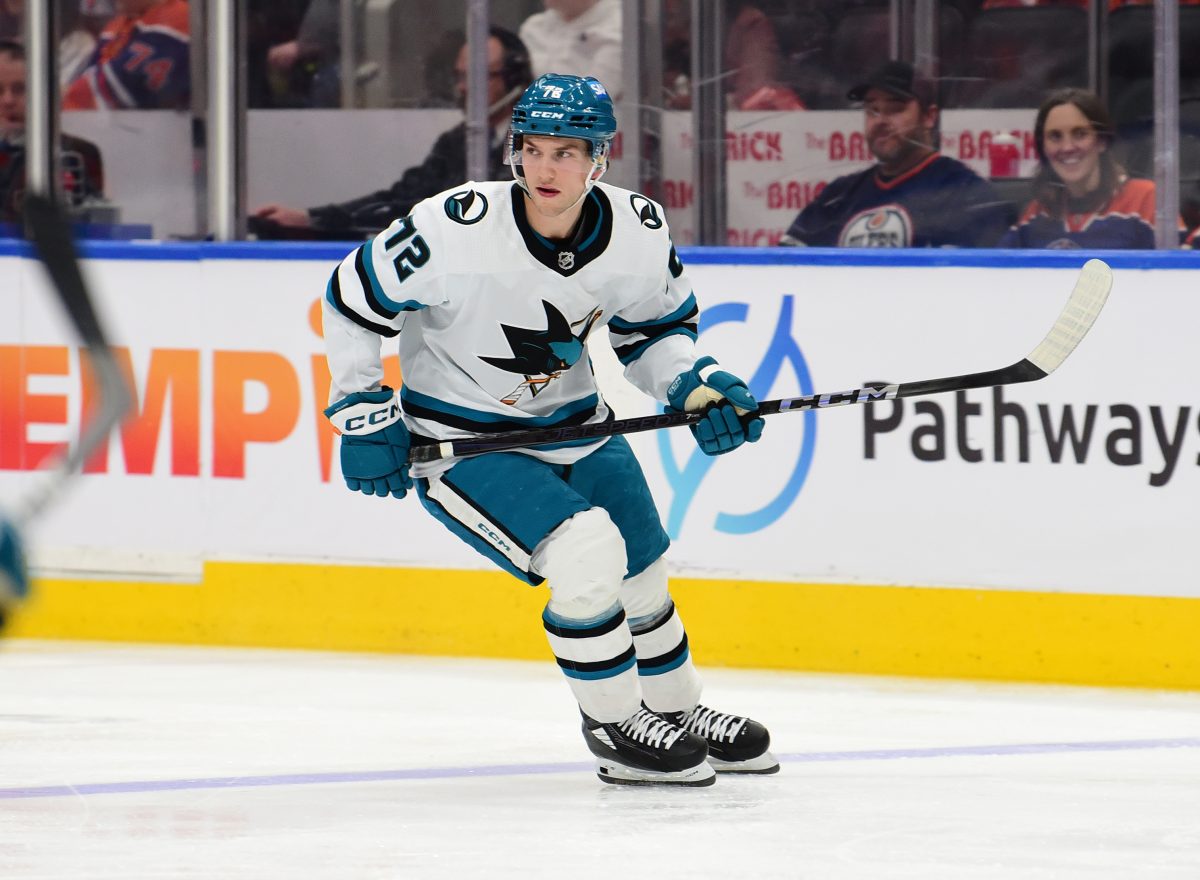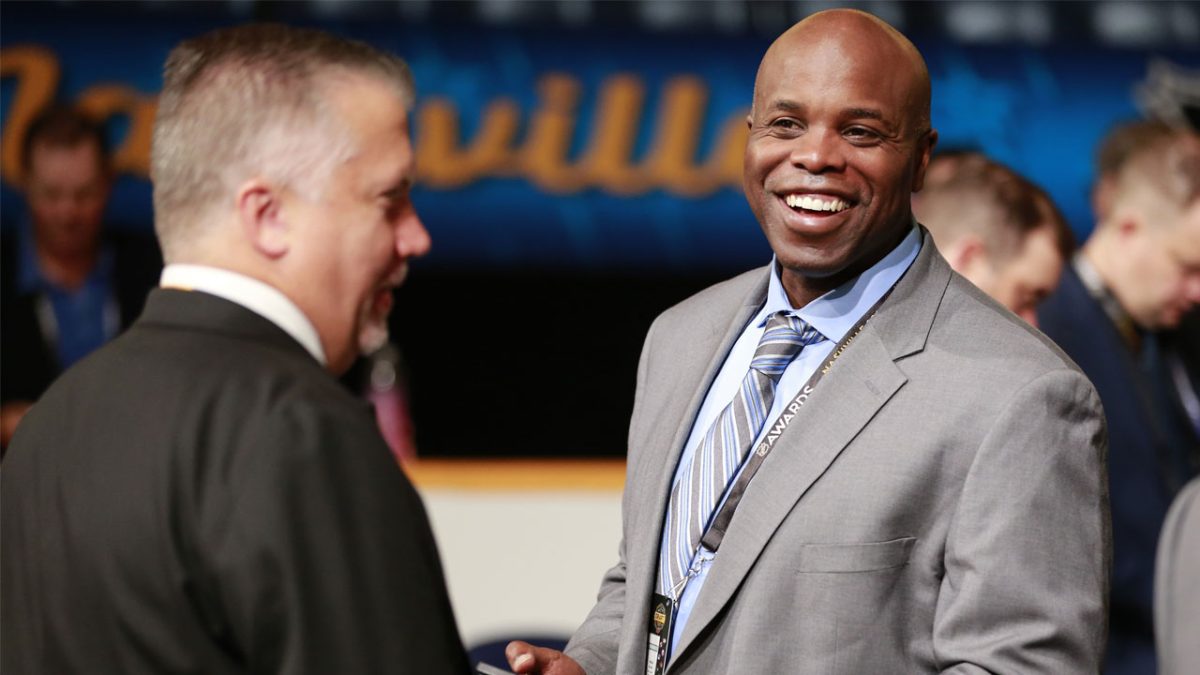- Editor's Note: Sheng Peng will be a regular contributor to NBC Sports California’s Sharks coverage. You can read more of his coverage on San Jose Hockey Now, listen to him on the San Jose Hockey Now Podcast, and follow him on Twitter at @Sheng_Peng.
Breaking news: David Quinn isn’t trying to get Connor Bedard to the Sharks. But at 3-8-3, San Jose currently has the third-best odds of landing the first overall pick in the 2023 NHL Draft.
Of course, that’s not where Quinn wants his team to land. Don’t expect anything else -- that’s not the nature of his job as coach. The Sharks just endured a 3-8-0 October, but the season still is young, and Quinn’s objective is to try to pull the most out of his team, at least as long as the playoffs are a mathematical possibility.
Stay in the game with the latest updates on your beloved Bay Area and California sports teams! Sign up here for our All Access Daily newsletter.
So, if you’re Quinn, and you’re trying to find hope among the ashes of the Sharks’ slow start, where should you look? Here are four positives to San Jose’s season so far that just might help the last-place team rise from the Pacific Division depths.
Erik Karlsson
Well, of course.
As of Nov. 7, Karlsson leads all NHL defensemen with 10 goals and 19 points, and is tied with Buffalo's Rasmus Dahlin at 1.36 points per game. All this in just 14 contests.
San Jose Sharks
Karlsson isn’t going to keep up this pace -- his current 22.2 shooting percentage is more than three times better than his previous career average of 6.5 -- but he doesn’t need to score goals to continue having a serious offensive impact.
Per SPORTLOGiQ, Karlsson currently leads the Sharks with 2.38 slot passes per game, well ahead of runner-up Alexander Barabanov’s 1.44. Karlsson also is well ahead of his own 1.76 slot pass per game rate from last season.
Point is, nobody on the Sharks is close to as good as Karlsson at connecting on a pass into a dangerous scoring area.
A resurgent Karlsson’s ability to set up his teammates will be mighty helpful for the next “positive” …
Nobody is scoring
Save for Karlsson and a surprisingly quick start from Nico Sturm, every other Sharks “scorer” is off their historical scoring pace.
That’s Timo Meier (5 goals in 14 games), Logan Couture (4), Tomas Hertl (2), Luke Kunin (2), Kevin Labanc (2), Alexander Barabanov (0), Nick Bonino (0), and Oskar Lindblom (0).
How is this a positive? That’s a lot of forwards due for positive regression, and should more than make up for a slowed Karlsson scoring rate. It’s already happening with Meier, who has five goals in his last five contests.
Team defense
At the beginning of the season, I believed the Sharks’ defensive corps could be one of the NHL's worst, but they’ve been better than expected. While that’s not reflected in their 20th-ranked 3.29 goals against per game, the underlying stats suggest they’re doing underrated work.
Including their second-ranked penalty kill, the Sharks have given up the 10th-least quality chances in the league, according to SPORTLOGiQ. Their Expected Goals Against is ninth in the league at a solid 2.64.
What’s probably helped is a change in how the Sharks defend: They’ve gone to zone in their own end, a significant departure from their previous man-to-man strategy. As the name hints, zone puts less strain on the individual defender.
RELATED: Source: Ferraro returning to Sharks lineup after face injury
Also, while general manager Mike Grier’s offseason additions up front, except for Sturm, haven’t worked out offensively, forwards such as Sturm, Kunin and Lorentz are hard-working and generally sound in their defensive details, which no doubt has helped when figuring out the intricacies of zone D.
James Reimer
Since 2018-19, only one other Sharks goalie, besides Reimer, has posted a positive goals saved above expected (GSAx) in a full season: Per Evolving Hockey, Aaron Dell was just above average with a +0.48 GSAx in all situations in 2019-20.
That means, essentially, that Dell saved a half goal more than expected over a course of a year. That’s not a lot, but between 2018-19 and Reimer, that was the summit of Sharks goaltending.
Reimer posted a +4.95 GSAx last year, and he’s off to a good start this year with a +3.83.
If he and/or Kaapo Kahkonen (-5.27 so far) can sustain some solid netminding, the Sharks might surprise yet this season.


